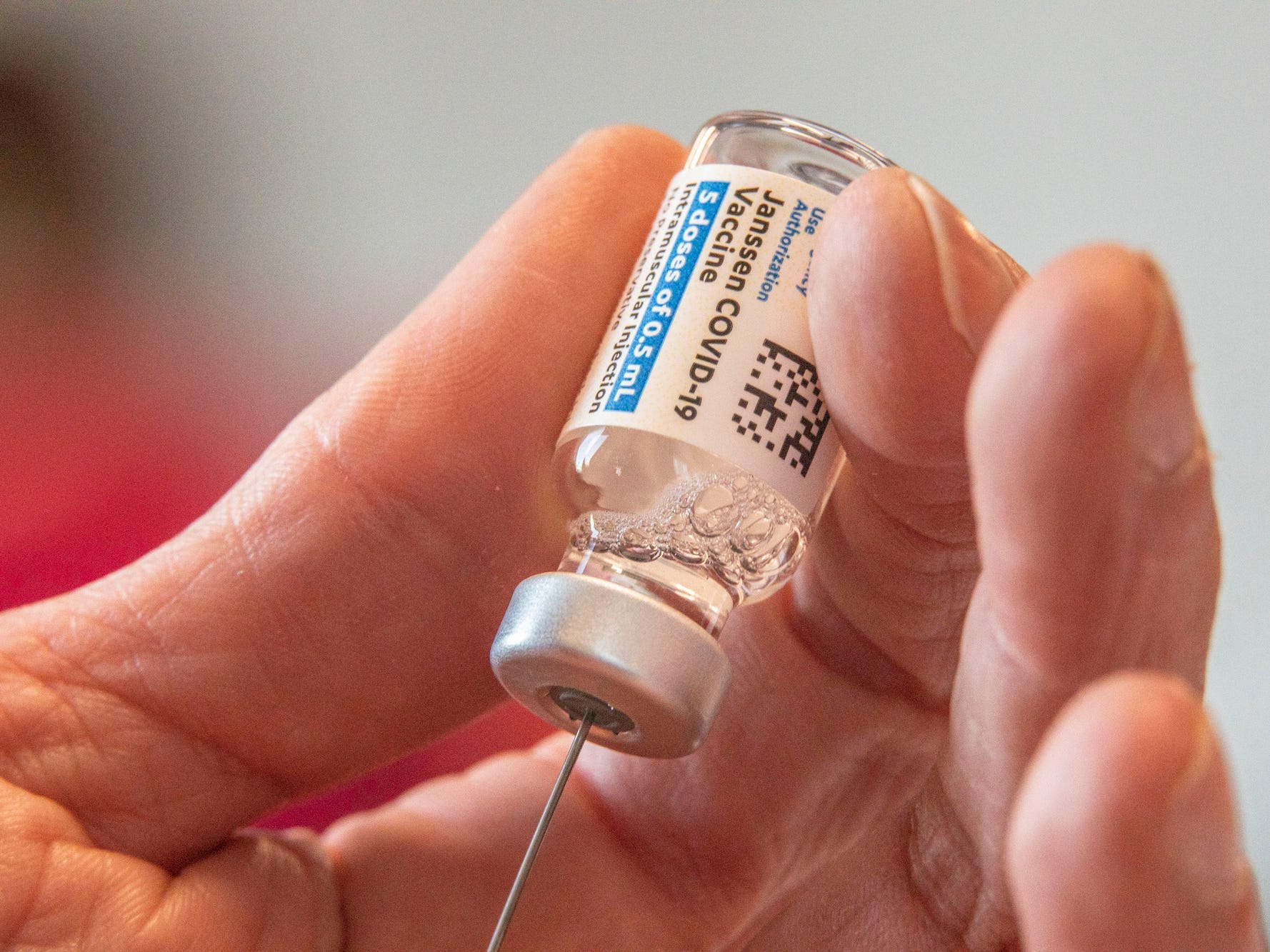
Stephen Zenner/SOPA Images/LightRocket via Getty Images
- Denmark banned Johnson & Johnson's COVID-19 vaccine on Monday.
- The risk of rare, unusual blood clots as a side effect outweighed the shot's benefits, authorities said.
- J&J's vaccine was highly effective at preventing COVID-19 in trials.
- See more stories on Insider's business page.
Denmark has become the first country in the world to stop using Johnson & Johnson's coronavirus shot, weeks after the country banned AstraZeneca's COVID-19 vaccine.
The risk of unusual blood clots outweighs the benefits of the J&J vaccine, the Danish Health Authority said in a statement Monday.
J&J's vaccine was highly effective at preventing COVID-19 in trials, but has come under scrutiny across the world following reports of rare unusual blood clots in six women aged 18 to 48 who received the vaccine in the US on April 13. At the time, 6.8 million Americans had received the single dose vaccine.
The European Medicines Agency (EMA) said on April 20 that unusual blood clots with low platelets were a very rare side effect of J&J's vaccine. But the overall benefit of the vaccine outweighed the very low risk of blood clots, it said. European countries can make their own decisions on vaccine rollouts.
The US immediately resumed its J&J vaccine rollout on April 23 after the Food and Drug Administration (FDA) and Centers for Disease Control and Prevention (CDC) said the benefits of the shot outweighed its risks. The ruling followed a 10-day investigation.
The Danish Health Authority said that it would continue to monitor the data coming out of the US.
No Danes have received J&J's vaccine because it was put on hold by the Danish Health Authority while they evaluated its risks.
The Danish Health Authority said that other vaccines were available, and that the COVID-19 outbreak was under control in the country. Denmark has around 760 reported new cases each day, compared with more than 4,500 daily cases in December 2020, according to Johns Hopkins University.
Banning J&J's shot means a four-week delay in getting 20 to 39 year olds immunized, the Danish Health Authority said. The country is using COVID-19 vaccines from Pfizer-BioNTech and Moderna instead, which have had no safety concerns so far.
Denmark also stopped using AstraZeneca's shot on April 15, following similar concerns about the risk of unusual blood clots. AstraZeneca and J&J's vaccines use a similar technology.
"One should also bear in mind that, going forward, we will first and foremost be vaccinating younger and healthy people," Helene Probst, deputy director general at the Danish Health Authority, said.
The Danish Health Authority said that all 65 year olds had at least been offered a COVID-19 vaccine. More than 11% of Danes are fully immunized, according to Johns Hopkins University.
Following the EMA's recommendation on J&J's vaccine, France decided to give J&J's shot to over 55s, Italy gave it to over 60s, and Spain to those between 70 and 79 years old.
